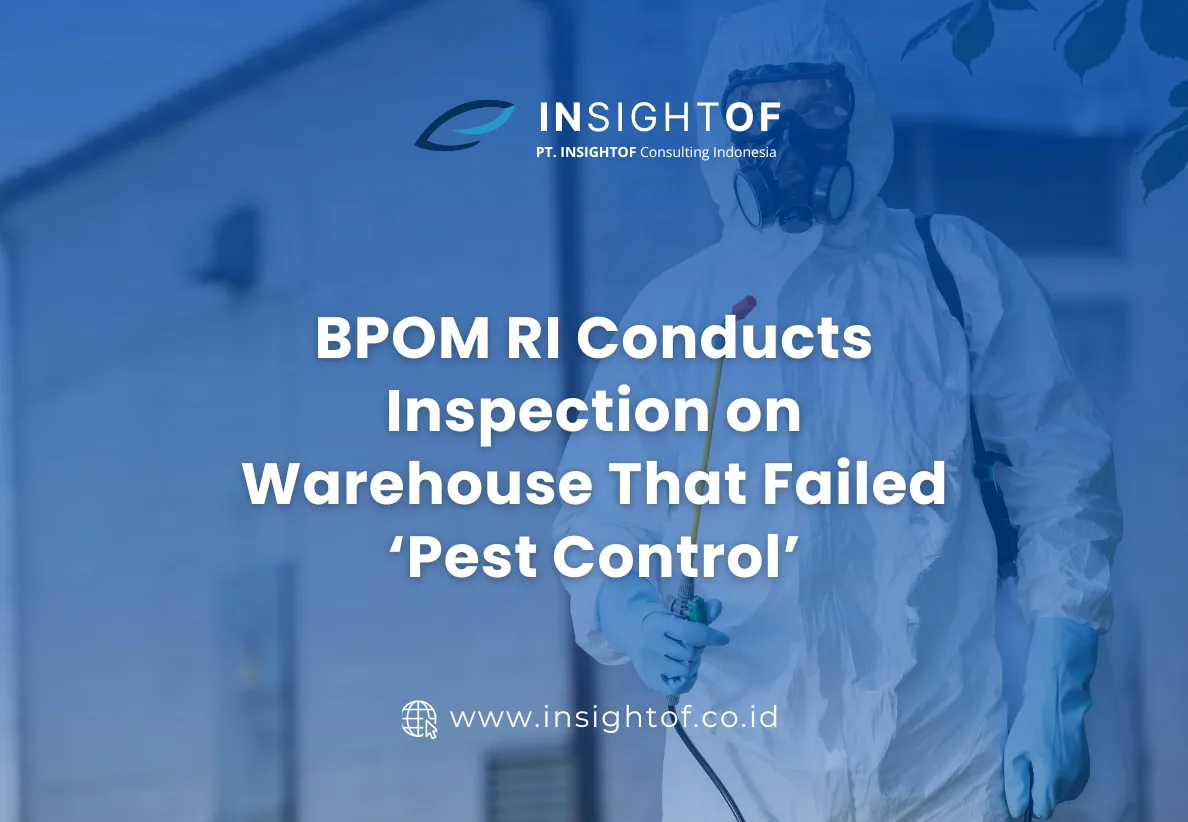The Indonesian Food and Drug Authority (BPOM RI) has conducted an inspection at an e-commerce warehouse storing various processed food products shipped during Ramadan. This initiative comes as sales of these products typically rise by 20 to 30 percent during the fasting month and in the lead-up to Eid al-Fitr.
“Our concern is that some of these products may have already expired. For example, during clearance sales, sellers may try to offload all their stock, which constitutes a violation,”
stated BPOM RI Head, Taruna Ikrar

(Photo by Nafilah Sri Sagita/detikHealth)
Non-Compliant Food Storage Conditions
The inspection revealed that several products did not meet regulatory standards, particularly regarding storage conditions. Many processed food items were stored at room temperature, which is unsuitable for certain products.
Additionally, the warehouse had not passed proper pest control measures. This poses a risk of contamination from rodents, flies, and other insects that can carry harmful bacteria and diseases.
“These conditions could lead to the spread of salmonella, heart syndrome, and other illnesses caused by exposure to contaminants. The pest control system needs improvement, and we have provided recommendations in accordance with existing regulations,” Taruna explained.

Damaged and Non-Sterile Packaging Found in Home Industry Products
Another issue identified during the inspection involved household-scale industrial products (PIRT) with damaged and non-sterile packaging. Non-sterile food products pose a higher risk, especially when stored for extended periods. According to regulations, food products with a shelf life of more than six months must be classified under the MD category instead of PIRT.
“If not handled properly, these products could be dangerous. Consumers might suffer from food poisoning or digestive issues. Therefore, we are intensifying our monitoring efforts for both ready-to-eat and processed food products, particularly in preparation for Ramadan and Eid al-Fitr,” Taruna emphasized during a press conference after the inspection.
The Importance of Pest Control in Warehouses
Pest control plays a crucial role in maintaining food safety in warehouses. Effective pest management helps prevent contamination from rodents, insects, and other pests that can carry bacteria, viruses, and allergens. Common pests in food storage facilities include rats, cockroaches, and flies, which can compromise product quality and lead to health risks.
Proper pest control measures include regular inspections, maintaining cleanliness, sealing potential entry points, and using safe pest control treatments. These steps help ensure that stored food remains uncontaminated and safe for consumption.

Consumer Awareness: Checking Food Packaging and Labels
Taruna urged consumers to be cautious when purchasing food products and gift parcels for Eid, especially when offered at exceptionally low prices.
“First, check the packaging. Second, examine the label for accuracy. Third, verify the product’s distribution permit. And most importantly, check the expiration date. This is crucial because, ahead of Ramadan and Eid, there is often a surge in sales,” he concluded.
By implementing strict food safety measures, including proper pest control in storage facilities, BPOM aims to ensure that consumers can enjoy safe, high-quality food during the holy month and festive season.
Sources:
(detikHealth) BPOM RI Sidak Gudang Tak Lolos ‘Pest Control’, Ini Risikonya – Nafilah Sri Sagita K








